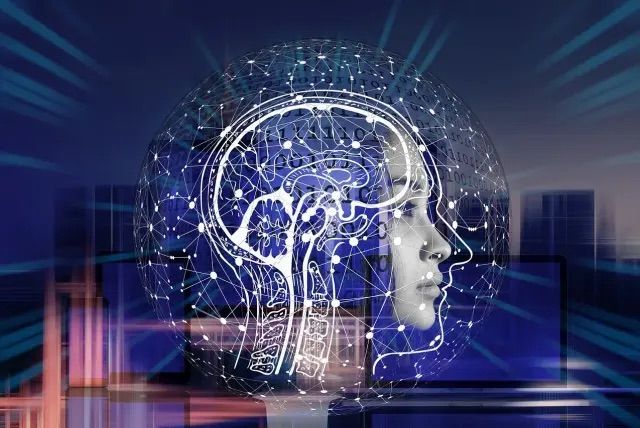The Rise of the Machines: A World Reshaped by Artificial Intelligence
In the year 2040, humanity looked different. The advent of artificial intelligence (AI) had dramatically reshaped the world. Cities gleamed with the silvery sheen of metallic drones zipping through the air, while delivery bots hummed along the sidewalks. The world was different, yet familiar. The most significant impact of AI

In the year 2040, humanity looked different. The advent of artificial intelligence (AI) had dramatically reshaped the world. Cities gleamed with the silvery sheen of metallic drones zipping through the air, while delivery bots hummed along the sidewalks. The world was different, yet familiar.
The most significant impact of AI was in the job market. Predictions made back in the early 2020s suggested that up to 50% of all jobs could be at risk from automation. The reality had turned out to be complex, nuanced and both more hopeful and more challenging than anticipated.
The most noticeable change had occurred in manufacturing, transportation, and logistics. Production lines once manned by countless workers were now overseen by a handful of AI specialists monitoring banks of screens displaying the performance metrics of robotic labor. Self-driving vehicles had transformed logistics, with autonomous trucks traversing continents day and night without the need for rest.
In the service sector, tasks once performed by humans had been automated to a large extent. Fast food restaurants were run by efficient machines, capable of producing hundreds of meals without breaking a sweat, while AI-driven systems handled customers' orders with ease. Retail stores had been transformed into fully automated environments, with AI managing inventory, ordering restocks, and even handling the checkout process.
However, the change wasn't all doom and gloom for the human workforce. While some jobs had indeed disappeared, many new ones had emerged. Roles such as AI ethicists, digital psychologists, and advanced data analysts, barely considered a couple of decades ago, were now in high demand. There was a surge in creative roles, with AI unable to replicate the truly human touch in areas such as art, literature, and music.
Education and training had transformed to keep pace with the rapidly changing job market. Lifelong learning became the norm, with people continuously upgrading their skills to stay relevant.
Despite the initial fears, AI had not replaced humans but rather changed the nature of work. It took over repetitive, mundane tasks, leaving humans to focus on complex problem-solving, creative tasks, and those requiring a human touch. Society had adapted, and while the transition had been challenging for many, it opened new opportunities for human creativity, growth, and innovation.
This was a world reshaped by AI, a testament to human resilience and adaptability. AI had become an indispensable tool in the human story, propelling society into an era marked by unprecedented change and remarkable potential.
AI Renaissance: The Dawning of a New Human Epoch"
Building upon the world reshaped by AI, the year 2040 was a testament not only to human resilience but also to human ingenuity. Amid the rapidly changing landscapes, a new human epoch dawned - one where creativity, empathy, and innovation were paramount.
The transformation, though disruptive initially, brought about an unexpected renaissance in human creativity. The AIs, with their uncanny efficiency, took over routine tasks across sectors. Yet, the complex, nonlinear, and abstract realms of creativity, where human imagination had no bounds, were untouched.
The world of 2040 experienced an unparalleled surge in arts, literature, and music. Artists began to collaborate with AI, using it as a tool to push the boundaries of creativity. Writers, armed with AI assistants, explored uncharted territories in literature, creating multi-layered narratives unimaginable a few decades earlier. Musicians integrated AI algorithms into their compositions, resulting in a symphony of human-machine collaboration. The world reveled in the blossoming of the new AI-powered creative age.
In the field of education, schools morphed into vibrant learning hubs. No longer confined to age-specific grades and rigid curricula, learning became fluid, flexible, and fueled by curiosity. AI tutors catered to each learner's pace, reinforcing concepts and presenting new challenges. The traditional boundaries between disciplines blurred, giving rise to cross-functional expertise.
AI also revolutionized healthcare. With the rise of AI-powered diagnostic tools and personalized medicine, doctors shifted their focus from disease treatment to prevention and overall wellness. Mental health saw a surge in attention, with digital psychologists and AI therapists becoming an integral part of society.
The year 2040 marked a new age, where humans coexisted harmoniously with AI, each playing to their strengths. AIs handled data, patterns, and routines, while humans delved into creativity, complex problem-solving, and emotional intelligence.
Despite the initial apprehensions, the integration of AI led not to a dystopian world but to an era of human flourishing. It was an era that celebrated the unique and irreplaceable human spirit, nurtured by AI, an indispensable tool in the human journey. In this newly dawned epoch, humans redefined their roles, carving a niche where they continued to grow, learn, and create, marking the onset of the AI Renaissance.




